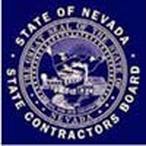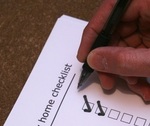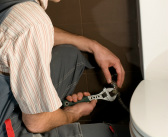By following our tips, you can improve your chances of finding a professional plumber who will do your job right.
The bathroom is probably the most used room in every home. No…
By following our tips, you can improve your chances of finding a professional plumber who will do your job right.

Always make sure that the plumber you hire is licensed and insured. This is critical, especially in a plumbing emergency and is your assurance that the plumber has met state training requirements. Insurance coverage gives you the peace of mind that the plumber will cover any accidental damage or injuries they may cause. Before your project is started, always ask to see a copy of the plumber’s license and their insurance to make sure everything is up to date.

Preventative plumbing maintenance that you can do yourself will definitely save you money. Pay attention to your drains as most plumbing repair calls are for clogged drains, mainly due to grease or hair build-up over time.
To help counteract and prevent grease build-up, there are several products available on the market designed for just that purpose. Experiment with these to find the one that works well for you. Regular use, according to directions, can keep you one step ahead of a clogged drain indefinitely. In addition, pouring boiling, sudsy water down the drain periodically will also help reduce grease build-up.
In most cases, hair can be trapped by using a proper strainer or drain cover. Hair products and toothpaste can also build-up over time. Monthly use of over-the-counter drain products are very effective. It is much less costly to keep drains clear than it is to call a plumber after they are already clogged.
Another costly, but preventable problem is frozen pipes. Yes, even in Las Vegas as we experienced with the cold temperatures this past winter. Make sure your outside pipes are well insulated ahead of time. Each fall, disconnect and drain your garden hoses, turn off the shut off valve and open the outdoor faucet. If there is no shut-off valve, consider installing one. Any water left in the pipes exposed to below freezing temperatures will freeze.
A routine of preventative maintenance will pay off in the long run.

Grouping all of your plumbing problems for one visit is one of the easiest ways to save money and time. Before you call a plumber, go through your home and check every faucet and fixture. Make a list of everything that drips, runs, clogs, etc. Also make sure there is an isolated shut-off valve installed for everything connected to a water line. If there isn’t, have one installed before you have an emergency and can’t shut off the water! A plumber can do it easily.
Then when the plumber comes, he can take care of all of your issues in one visit. By grouping all the repairs, you will avoid additional trip charges, set-up time and the hassle of scheduling multiple visits. Anything you can do to save the plumber time will also save you money, so be organized and have a list of everything you want addressed. If you aren’t sure of the problem, have a list of symptoms and questions you would like to ask.

Buying your own fixtures is a popular and effective way to save money on your next plumbing project. Traditionally plumbers sell you the toilets, sinks, faucets, etc. that they install. Typically they will get the items you want at a discounted price from their supplier and then charge you a higher price to cover the cost of them picking it up, possibly returning it, restocking fees, storage, overhead, etc.
These days that is not necessarily the case because the larger home center stores now charge prices that are sometimes even lower than a plumber can get from his supplier. This means that you and the plumber are both shopping at the same store for the same price. There are many instances where you will do better buying your own fixtures, provided you have the time to shop, know exactly what size you need and can get it to your home or business yourself.
While this approach can save you money, you will need to shop carefully, as there are many things to keep in mind. Many fixtures that appear to be great buys may be poorly made or missing adapters, installing kits or other components that normally come with similar products. If you supply your own fixture and it is defective or something goes wrong with it after it is installed, the plumber will generally not guarantee or be responsible for it. One way to get around this is to check with the plumber up front about what brands or product lines he recommends and then go and buy those products or models.
Checking with the plumber up front also gets you around another possible problem. Every product or line of products has it’s own installation quirks. Choosing a fixture that is familiar to your plumber assures that he will be able to complete the job in a minimum of time, giving you full advantage of his expertise and experience.